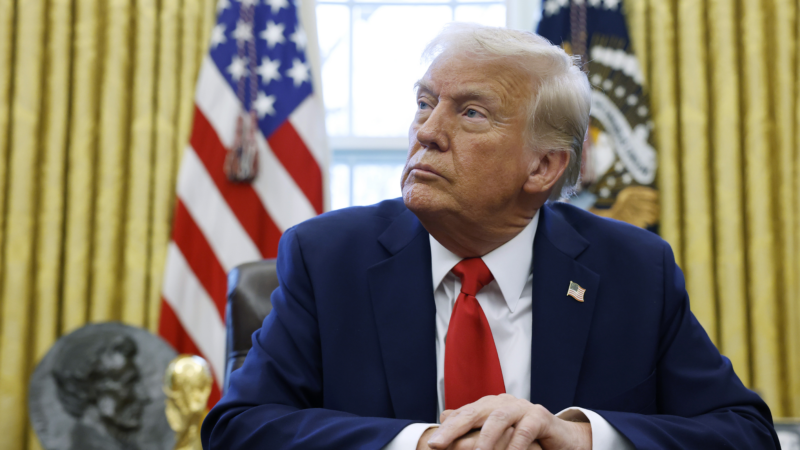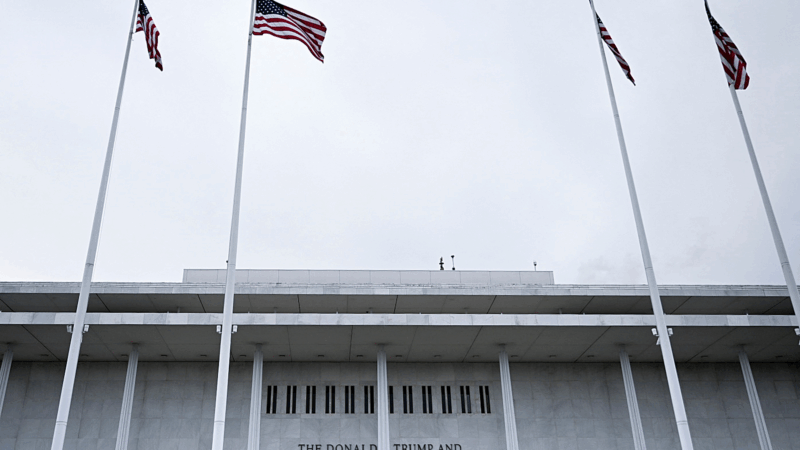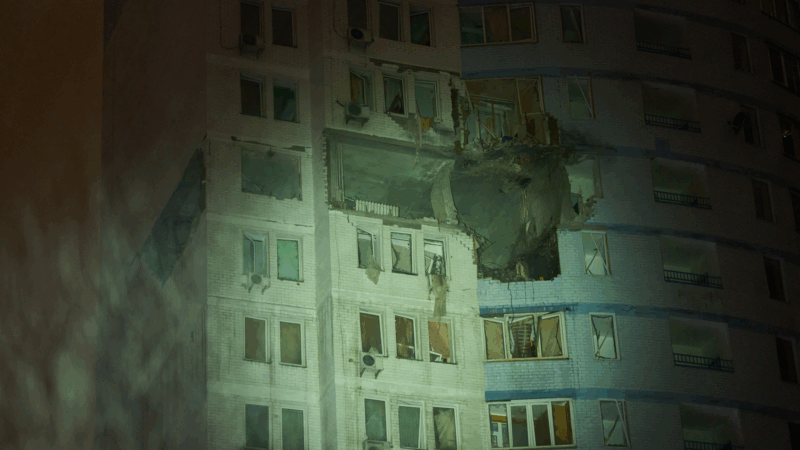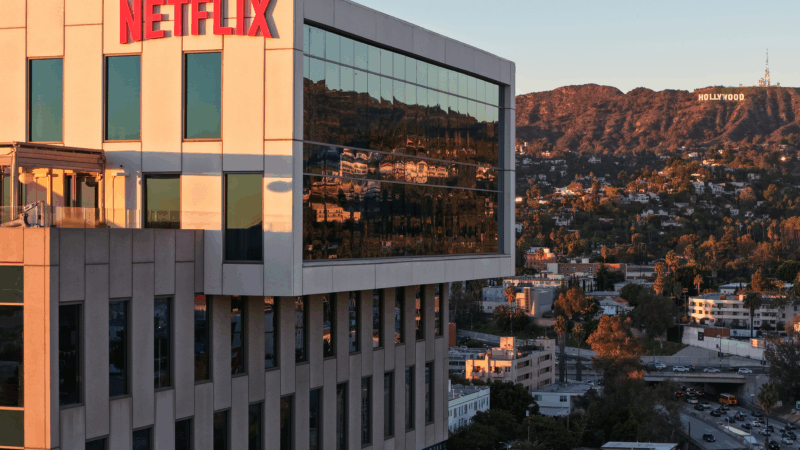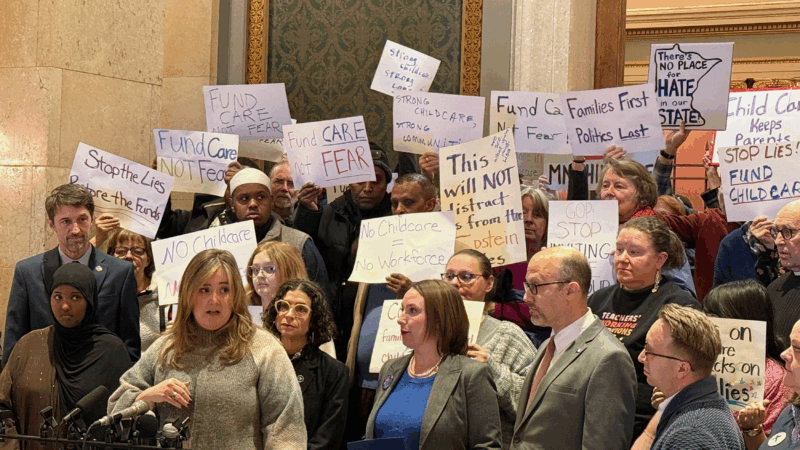Here are 3 takeaways from Trump’s plans to name himself chairman of Kennedy Center
President Trump plans to fire several Board members at Washington D.C.’s John F. Kennedy Center for the Performing Arts. And to the surprise of many in the arts world, on Friday, he said he would name himself chairman. Here’s why any of that matters.
1. He wants to chair a board. Is that important?
Admittedly, this seems like small potatoes compared with the President’s proposed annexing of Greenland, the Panama Canal, Canada and Gaza, but in the years since the Kennedy Center was first proposed in the late 1950s, it has had an outsized impact on how the American public views culture. Besides being home to the National Symphony and the Washington Opera, not to mention Broadway touring companies, dance troupes, jazz, blues, and pop concerts, the Center is also a national monument — a white marble temple situated on the banks of the Potomac in the nation’s capital. That gives it unmatched cachet and international prominence. At the height of the Cold War, when the Center brought the Bolshoi Ballet and the Ballet Nacional de Cuba to the U.S. for the first time, that was a statement about the soft power of cultural diplomacy that President Kennedy had referenced at an early fundraiser for the Center in 1962.
“Today, as always,” he told a glittering crowd that included opera singer Marian Anderson and an eight-year-old cello prodigy named Yo-Yo Ma, “art knows no national boundaries. Genius can speak in any tongue, and the entire world will hear it. And listen.”
For that reason, it has always striven to represent everyone — its board bipartisan, evenly split between Democratic and Republican members — and its programming broad, from bluegrass to hip-hop, drawing room comedy to avant-garde happening.
2. Why is President Trump taking control?
Trump has a tangled history with the Center. In his first term, he skipped the Kennedy Center Honors ceremony when some honorees declined to meet him for a reception at the White House. He ended up skipping all four years, the first President ever to do that. But his post on his social media platform, Truth Social, doesn’t mention that backstory. He says that he’s firing the Board chairman [Carlyle Investment Group co-founder David Rubenstein] and other members who “do not share our vision for a Golden Age in Arts and Culture.” He didn’t specify who else he fired, but the membership includes singer Jon Batiste and Grey’s Anatomy creator Shonda Rhimes. What the President did mention as a rationale was a claim that “Just last year, the Kennedy Center featured Drag Shows specifically targeting our youth — THIS WILL STOP.”
I looked back through last year’s bookings and there were a couple of drag brunches in the Center’s rooftop restaurant, a lip-synched Drag Salute to Divas at its free Millennium stage, and a single full-fledged production: comedian Kris Andersson’s silly solo show Dixie’s Tupperware Party. All those shows are aimed at adult crowds. But Dixie’s Tupperware Party played at the Center’s 324-seat Family Theater, so named to make it sound more inviting than the much larger Opera House and Concert Hall, each of which has more than 2000 seats. The theater’s moniker is, for the record, just a name — I’ve caught lectures and films at the “Family” Theater, just as I’ve seen concerts and plays at the “Opera” House.
3. Where do things go from here?
That’s all President Trump has mentioned so far, but the Kennedy Center’s top brass got a letter on Jan. 24, just four days into the new administration, from two Republican congressmen — Rep. Christopher Smith of New Jersey and Rep. John Moolenaar of Michigan — accusing the Center of “subsidizing Chinese Communist Party propaganda,” by presenting a five-day run of performances by the National Ballet of China. So that might be a hint of things to come. It’s sobering if you remember that at the height of the Cold War, the Center brought the Bolshoi Ballet from Russia, so it’s kind of baked into its DNA.
Transcript:
SCOTT DETROW, HOST:
As another eventful week in Washington came to a close, key aspects of President Donald Trump’s efforts to drastically reshape the U.S. government were put on hold by two federal courts. First, a U.S. district judge blocked an order to put thousands of USAID workers on leave. And then this morning, another federal judge blocked Elon Musk’s Department of Government Efficiency, or DOGE, from accessing sensitive Treasury Department records.
With those efforts paused for now, President Trump moved to take over another federal institution. On Friday, he fired several board members at Washington D.C.’s John F. Kennedy Center for the Performing Arts. And to the surprise of many in the arts world, Trump said he would name himself chairman. NPR’s Bob Mondello is here in studio to help us make sense of what’s happening. Hey, Bob.
BOB MONDELLO, BYLINE: Hey, good to be here.
DETROW: So first of all, the Kennedy Center is home to the National Symphony, the Washington Opera. It’s a place to see Broadway touring companies. But this is also a national monument.
MONDELLO: Yes, a cultural center named for a president, situated in D.C. right at the edge of Rock Creek Park, which is maintained by the National Park Service, the center is a hybrid operation. The Park Service is responsible for keeping up the building, and Congress appropriates money for that. But what plays in the center is paid for by ticket revenue and private donations.
DETROW: When it began, was there anything like it in Washington?
MONDELLO: No. I’m a lifelong resident of D.C., so I’m allowed to say this. D.C. was a cultural backwater in 1955. When President Eisenhower first proposed building a national performing arts auditorium – singular – the city only had one large concert venue. The center filled a void, and it also changed the country’s arts focus. It brought the Bolshoi Ballet and the La Scala opera to the U.S. for the first time. It inspired American artists, and President Kennedy talked about why that was important at a fundraiser for the center in 1962, when it was still sketches on a drawing board.
(SOUNDBITE OF ARCHIVED RECORDING)
JOHN F KENNEDY: Today, as always, art knows no national boundaries. Genius can speak in any tongue, and the entire world will hear it and listen.
DETROW: That’s President Kennedy. Now let’s talk about President Trump. Why does he say he’s taking control?
MONDELLO: Well, he didn’t say this, but he has a history with the center. In his first term, he skipped the Kennedy Center honors when some of the honorees didn’t want to meet him for a reception at the White House. Beforehand, he skipped all four years, the first president ever to do that. But on Truth Social, he just says that he’s firing the board chairman, Carlyle Invent – Carlyle Investment Group co-founder David Rubenstein, and other members who, quote, “do not share our vision for a golden age in arts and culture.” He didn’t specify who else he fired, but the membership includes singer Jonn Batiste and “Grey’s Anatomy” creator Shonda Rhimes.
DETROW: Any sense what this golden age is going to look like?
MONDELLO: Well, it will apparently not include crossdressing performers. His post on Truth Social claims that – and I’m quoting – “just last year, the Kennedy Center featured drag shows specifically targeting our youth. This will stop,” end quote. Now, I looked back through last year’s bookings, and there were a couple of drag brunches in the enter’s restaurant, a lip-synced drag salute to divas in its free Millennium Stage, and comedian Kris Anderson’s silly solo show, Dixie’s Tupperware Party.
(SOUNDBITE OF ARCHIVED RECORDING)
KRIS ANDERSON: And I get it. I’m lucky. Not everybody can be like me and have both beauty and the other one. So I’m just really lucky to be able to be – and that’s what I want to share.
DETROW: Did Trump say how this was, so-called, targeting youth?
MONDELLO: No, I think that’s a mix-up, actually. Dixie’s Tupperware Party played at the Kennedy Center’s smallest auditorium, which is called the Family Theater because it only has 324 seats, and that makes it sound family-friendly compared to the 2,000 seat Opera House and Concert Hall. But it is just a name. I’ve caught lectures and films at the Family Theater, just as I’ve seen concerts and plays at the Opera House.
DETROW: That is NPR’s Bob Mondello. Bob. Thank you so much.
MONDELLO: My pleasure.
Washington National Opera leaves Kennedy Center, joining slew of artist exits
The WNO is just the latest to say they will no longer perform at the Kennedy Center since Trump took over last year.
Ukrainian drones set fire to Russian oil depot after Moscow launches new hypersonic missile
The strike comes a day after Russia bombarded Ukraine with hundreds of drones and dozens of missiles, including a powerful new hypersonic missile that hit western Ukraine.
Opinion: Remembering Renee Good
Renee Good won a national prize six years ago for her poem "On Learning to Dissect Fetal Pigs," which muses on science and faith. Good was shot to death by an ICE agent this week in Minneapolis.
PHOTOS: Laundry is a chore but there’s a beauty and serenity in the way it hangs out
A new photo series from Filipino photographer Macy Castañeda Lee offers a visually striking view of the mundane task of doing laundry and the role it plays in a rural economy.
2026 looks ominous for media, from Hollywood to journalism
Critic at large Eric Deggans says that in 2026, audiences have more power than they realize to determine the future of news and entertainment.
Influencer, White House welfare fraud claims are distorted, but the system has risks
Federal officials are targeting Democratic-led states over alleged safety-net fraud. Critics worry a drumbeat of unfounded accusations could undermine public trust.

